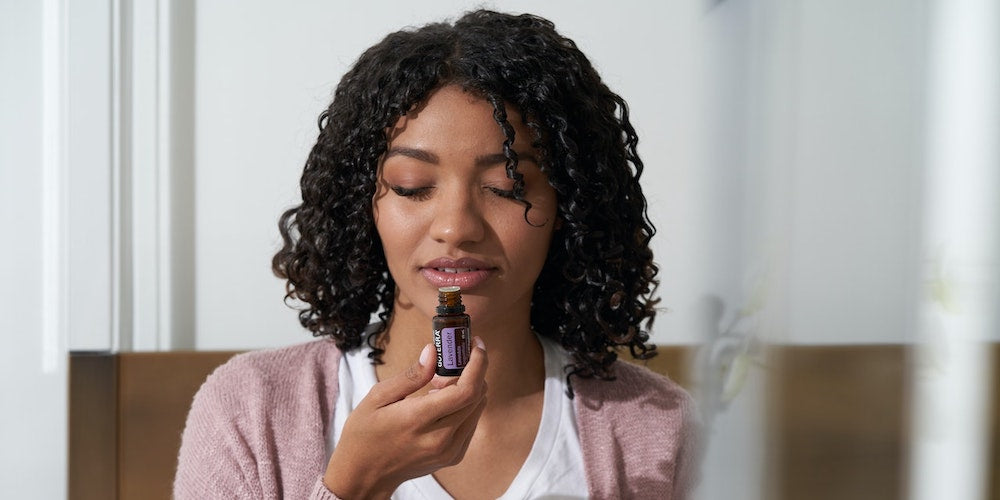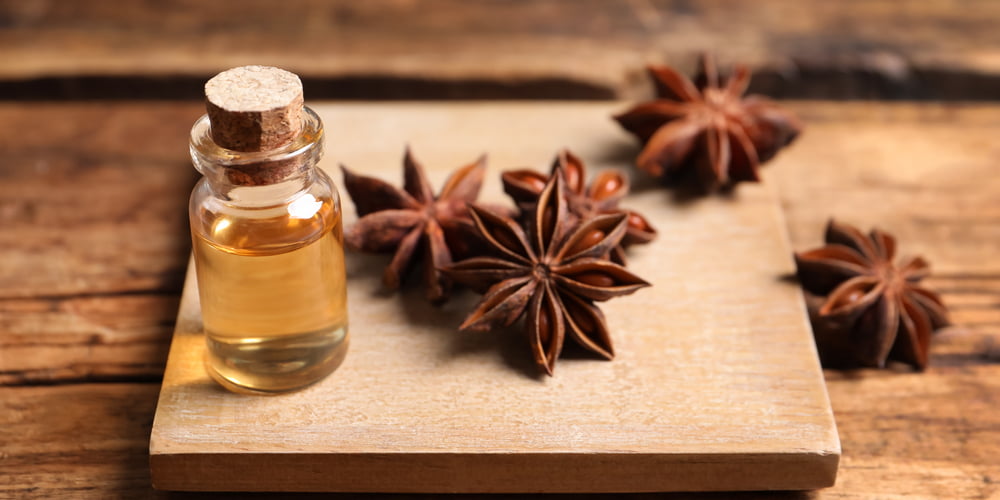
Lavender Oil For Hair: Benefits, Uses, Side-Effects
What is it | Lavender oil for hair benefits | How to use | Side effects | Lavender oil for skin | Lavender oil for sleep | How to buy | Conclusion | Additional FAQ's
For centuries, lavender oil has been treasured for its countless beneficial properties, including its sweet aroma, relaxing properties, and its use in skincare.
But did you know it's a hidden gem in the world of natural hair care?
With an increased interest in organic, toxin-free products, lavender oil has emerged as a popular ingredient in hair care routines.
Let's delve into lavender oil for hair, its scientifically proven benefits to how to use it effectively and safely.
What is Lavender Oil?
Lavender oil is a versatile essential oil extracted from the flowers of the lavender plant, scientifically known as Lavandula angustifolia.
This extraction is typically done through a process called steam distillation, which helps retain the active compounds that give lavender oil its distinctive properties.
The oil is rich in compounds like linalyl acetate, linalool, and camphor, each contributing to its unique therapeutic and aromatic qualities.
Multiple studies vouch for the efficacy of lavender oil in various health and beauty applications.
For instance, a study published in 2014 found that lavender oil has strong antimicrobial properties, which can help maintain scalp health.

I LOVE MY HAIR NOW
FullyVital hair serum and hair vitamins made tremendous improvements in my hair. I truly love my hair now.
Dorit S.,
Lavender Oil: Benefits for Hair
Promotes Hair Growth
Lavender oil is known for promoting hair growth.
Lavender oil for hair growth study
A study in 2016 showed that topical application of lavender oil resulted in a significant increase in the number of hair follicles, deepened hair follicle depth, and thickened the dermal layer.
While this study was conducted on mice, the results are quite promising.
Mice in the study grew hair thicker and faster than normal.
These findings make using lavender oil for hair growth a natural remedy for people experiencing hair thinning.
Helps with Scalp Conditions
Lavender's antimicrobial and anti-inflammatory properties can help combat dandruff and scalp acne, promoting a healthier scalp environment conducive to hair growth.
Prevents Hair Loss
By improving blood circulation and reducing stress, lavender oil can help mitigate hair loss.
A 1998 study published in the Archives of Dermatology demonstrated that aromatherapy using essential oils, including lavender, could effectively treat alopecia areata.
Enhances Hair Health and Luster
Lavender oil's moisturizing properties can prevent hair from becoming brittle and dry, therefore contributing to shinier, healthier-looking hair.
Relieves Stress and Promotes Sleep
While not a direct benefit to hair health, lavender oil's well-documented stress-relieving and sleep-promoting properties can contribute to overall hair health.
Chronic stress can lead to hair loss, as noted in a study in 2013.
How to Use Lavender Oil for Hair
Dilution and Application Methods
Essential oils, including lavender oil, should always be diluted with a carrier oil like coconut oil or jojoba oil before application to prevent skin irritation.
A commonly recommended ratio is 3-5 drops of lavender oil per tablespoon of carrier oil.
Incorporating it into your Routine
You can add diluted lavender oil to your regular shampoo or conditioner, or apply it directly to the scalp as a soothing massage oil.
Use in Combination with Other Essential Oils
Lavender oil pairs well with other beneficial essential oils like rosemary and tea tree oil for an enhanced hair care blend.
DIY Hair Masks and Treatments
For a deep conditioning treatment, mix lavender oil with a nourishing base like shea butter or olive oil, apply to hair, leave on for 30 minutes, then rinse.
Remember, while lavender oil is a valuable addition to your hair care routine, it's essential to use it properly and safely for optimal benefits.
Lavender Oil for Hair: Side Effects
Skin Sensitivity or Allergic Reactions
As with any essential oil, some individuals may experience skin irritation or allergic reactions to lavender oil.
Always do a patch test before full application.
The Importance of Patch Tests
Apply a small amount of diluted lavender oil to a discreet area of skin, like the inside of your forearm, and wait 24 hours to see if any reaction occurs.
Precautions While Using Essential Oils
Pregnant women, children, and people with certain health conditions should consult with a healthcare professional before using essential oils.
Lavender Oil For Skin
You will be pleased to hear that you can use lavender oil for skin too.
Its antimicrobial properties help combat acne-causing bacteria, keeping breakouts at bay, as demonstrated by a 2010 study.
Additionally, lavender oil can soothe dry or itchy skin and aid in skin's natural healing process, making it an ideal ingredient for managing conditions like eczema or psoriasis.
Its antioxidant properties, as evidenced by a 2013 study, can also ward off skin-damaging free radicals and slow the skin's aging process.
Lavender Oil For Sleep
Lavender oil is renowned for its calming and sleep-promoting properties.
Studies, including one published in 2012, have shown that inhaling lavender oil can improve sleep quality and increase sleep duration.
This makes lavender oil an excellent natural alternative for those struggling with insomnia or restless nights.
To use lavender oil for sleep, you can add a few drops to a diffuser and let it run in your bedroom before and during sleep.
You could also place two drops on your pillow or apply a diluted mix onto your temples or wrists before bed.
What Type Of Lavender Oil Is Best For Hair?
When choosing a lavender oil, consider its purity, source, and extraction method.
Look for oils that are 100% pure, organic, and sourced from reputable suppliers.
How To Buy The Best Lavender Oil
There are many high-quality brands available on the market.
Research and choose one that aligns with your needs and preferences.
Pay attention to the purity and extraction method.
Contaminants may seep into lavender oil, which can be harmful to your body.
When purchasing, opt for essential oils housed in dark glass bottles. This precaution will protect the lavender oil from any damage from sunlight.
Conclusion
Embracing lavender oil as part of your hair care routine can be a game-changer.
From promoting hair growth to improving scalp health, its benefits are backed by science and centuries of use.
As you start experimenting with lavender oil, remember that everyone's hair is unique, and what works for one person might not work for another.
But with patience and care, you're on your way to healthier, luscious locks naturally.
Lavender Oil: Additional FAQs
Can I use lavender oil for black hair?
Absolutely, lavender oil can be used on all hair types, including black hair.
Its properties, such as promoting hair growth, improving scalp health, and enhancing hair's natural shine, can be beneficial to black hair.
However, it should always be diluted with a carrier oil before use to prevent any possible skin irritation.
How often to use lavender oil on hair?
The frequency of lavender oil usage on hair largely depends on individual needs and hair type.
Generally, applying lavender oil on hair (diluted with a carrier oil) 1-2 times a week can provide benefits like improved scalp health and hair luster.
However, it's essential to monitor your hair's response and adjust usage accordingly.
How long does it take lavender oil to work?
The time it takes for lavender oil to show effects can vary widely depending on individual factors and the specific issue being addressed.
For instance, improvements in scalp health might be noticeable within a few weeks, while improvements in hair quality may require consistent use over several months.
How long to leave lavender oil in hair?
Lavender oil, when diluted with a carrier oil, can be left in the hair for about 30 minutes to an hour before washing it out with a gentle shampoo.
For a more intensive treatment, you could leave it on overnight, ensuring your hair is well-protected to avoid staining your bedding.
Is lavender or rosemary better for hair growth?
Both lavender and rosemary oil have been studied for their potential to promote hair growth.
Lavender oil is known to increase the number of hair follicles and deepen follicle depth, while rosemary oil has been found to be as effective as minoxidil.
The choice between the two might come down to personal preference for scent or individual skin and hair responses.
Can I use castor and lavender oil for hair growth?
Yes, combining castor oil, known for its high ricinoleic acid content that stimulates blood circulation to the scalp, and lavender oil, known for its ability to increase the number of hair follicles, can create an effective blend for promoting hair growth.
However, always dilute essential oils with a carrier oil like castor oil before applying to the scalp, and conduct a patch test to rule out any potential allergic reactions.
We even recommend mixing in some peppermint oil to boost hair and shine. you can also try adding in batana oil.







